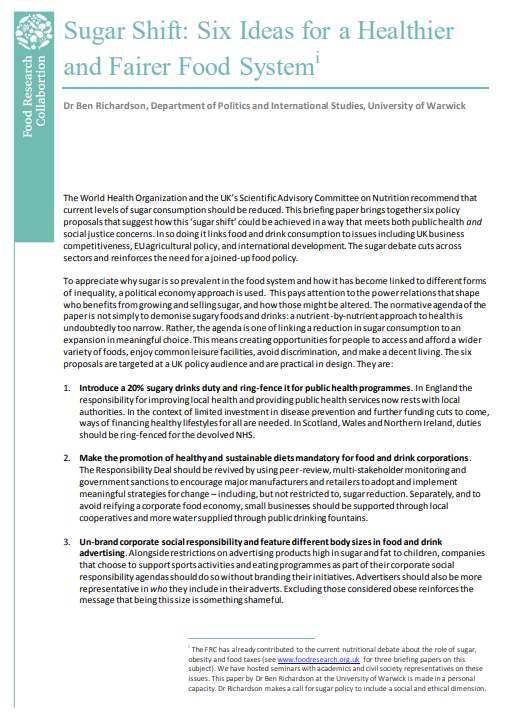The World Health Organization and the UK’s Scientific Advisory Committee on Nutrition recommend that current levels of sugar consumption should be reduced. This briefing paper brings together six policy proposals that suggest how this ‘sugar shift’ could be achieved in a way that meets both public health and social justice concerns. In so doing it links food and drink consumption to issues including UK business competitiveness, EU agricultural policy, and international development. The sugar debate cuts across sectors and reinforces the need for a joined-up food policy.
To appreciate why sugar is so prevalent in the food system and how it has become linked to different forms of inequality, a political economy approach is used. This pays attention to the power relations that shape who benefits from growing and selling sugar, and how those might be altered. The normative agenda of the paper is not simply to demonise sugary foods and drinks: a nutrient-by-nutrient approach to health is undoubtedly too narrow. Rather, the agenda is to link a reduction in sugar to an expansion in meaningful choice. This means creating opportunities for people to access and afford a wider variety of foods, enjoy common leisure facilities, avoid discrimination, and make a decent living. The six proposals are targeted at a UK policy audience and are practical in design.
This paper was an outcome of a roundtable on sugar, organised and hosted by the FRC on 28 October 2015.


